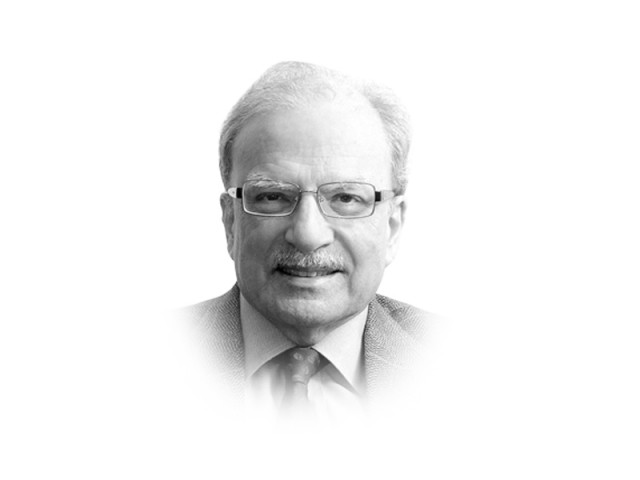Some lessons from India
There are three important lessons Pakistan can draw from India's democracy, politics.

Some lessons from India
State elections in the spring of 2012 delivered a blow to the government headed by Prime Minister Manmohan Singh and to the political ambitions of Rahul Gandhi, the scion of the Nehru-Gandhi dynasty. Elections were held in March in five states — Uttar Pradesh (UP), Punjab, Uttarkahnd, Manipur and Goa. The aspirant to the country’s premiership — the job held by his great grandfather, grandmother, and father —had campaigned hard in UP, India’s largest state with a population of 200 million. He had made the state election a test of his leadership. He failed mightily in the test with the Congress Party winning a mere 28 seats out of 403. This was only a handful more than that won in 2007. The Samajwadi Party, founded by Mulyama Singh Yadav, who was once the state’s chief minister, raced ahead of the other parties and won 224 seats. The governing Bahujan Samaj Party led by Mayawati, a low caste politician, took 80 seats, the Bharatiya Janata Party (BJP) another 47 seats. Gandhi took full responsibility for the debacle suffered by his Congress party.
The UP results are significant for several different reasons for the development of the Indian political system. They confirm the regionalisation of politics in the country as power has been passed from one local party to another party with strong local roots. Some analysts have suggested that the localisation of politics may bring an end to India’s dynastic politics. The UPO elections may result in the slow death of Delhi’s dynasty. But new dynasties are being born in the states. The most successful politician in UP is Akhilesh Singh Yadav, the son of the leader of his party.
Why did the Congress do so poorly and what would be the likely consequences for this turn in the fortunes of the party? Let us take the second question first. The Indian political landscape is divided into two parts — the one dominated by two national parties and the other in which a number of regional parties have a significant presence. The Congress and the BJP, have sclerotic leadership. Also as shown by the recent local elections, they are poorly organised at the sub-national levels. The regional parties, on the other hand, have managed to reach all segments of the population they seek to represent. Since some of the regional parties are represented in the coalition that governs from New Delhi, they are pressing their economic and social agendas which are much narrower in scope than those the national parties would like to pursue. This has produced a dysfunctional political system that is holding the country back.
Politics, therefore, is the main reason why India has lost some of the dynamism of recent years. Growth in the last quarter of 2011 was the slowest in nearly three years. As the Financial Times wrote in an editorial, “comatose policymaking risks making it even slower. For the Indian economy to steam ahead as it should, it is essential that Delhi’s ability to govern the country is restored. But this is impossible given the growing influence of India’s regional parties, which can frustrate government action when this does not meet local demands.”
The Indian political system has become increasingly corrupt. Some Indian analysts trace this to the decision taken by prime minister Indira Gandhi in 1967 to outlaw corporate contributions. She did this to cripple a right wing opposition movement that had the support of big business. As Prem Shankar Jha wrote in the magazine Tehelka, the harm done by this move was “beyond measure”. Elections are expensive: a typical Indian constituency might have 1,000 villages and to reach them and provide food to the constituents, a common practice in South Asia, results in costs that are beyond the means of most politicians. This has resulted in the entry of the very rich into politics or an alliance between politicians and those who draw a significant proportion of their income and wealth from illegal pursuits. According to one observer of the Indian political scene, ‘criminals and wealthy politicians regularly dole out cash in return for votes. Criminals have other attractions for voters, who tend to favour strong men who can protect their interests in constituencies in which caste divisions are sharpest. Indeed, the breakdown of the criminal justice system means that an innocent person’s name can be easily tarnished by a politically motivated charge that might take decades to be resolved.’
Some data collected by the Association for Democratic Reforms, an advocacy group, show the extent of the penetration of crime into politics. In the state of Uttar Pradesh, of the 2,000 candidates from the main parties contesting, more than a third faced criminal charges. ‘Despite a nationwide campaign against corruption last year, the percentage of the candidates facing criminal charges has risen to 35 per cent from 28 per cent since state elections were held in 2007. At least 30 candidates were incarcerated.’
There are three important lessons Pakistan can draw from the Indian experience. What India has seen in terms of localisation of politics has also begun to happen in Pakistan. This will make economic decision-making even more difficult than now. However, dynastic politics will prove hard to replace in Pakistan as has been the case in India. Some of the corruption in the political system in Pakistan is the result of the state’s inability to provide for elections expenses and also to control them. There is a great deal to be careful about as Pakistan’s political evolution moves forward and follows the course India has taken.
Published in The Express Tribune, March 19th, 2012.
Correction: An earlier version of the article incorrectly named “Bahujan Samaj Party” as “Bahjan Janata Party”. The error has been rectified.
















COMMENTS
Comments are moderated and generally will be posted if they are on-topic and not abusive.
For more information, please see our Comments FAQ